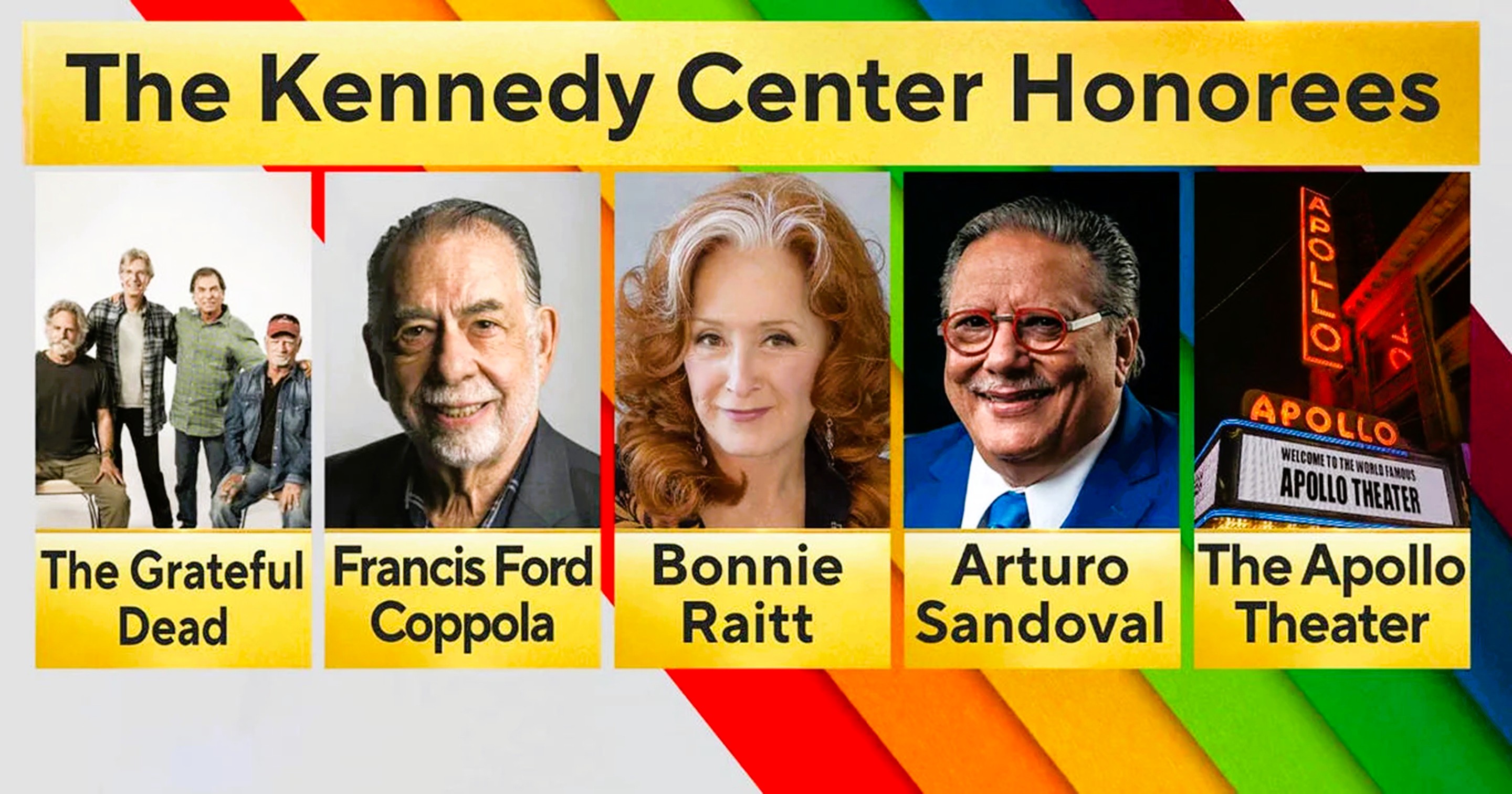This month, the hallowed halls of the Kennedy Center got themselves a little shake, rattle, and roll as the 47th Annual Honors broadcast on CBS. On a night filled with pomp and circumstance, something altogether more cosmic entered the mix—our beloved Grateful Dead, riding the long, strange trip right into the arms of America’s cultural canon.
Picture it: Bob Weir, Bill Kreutzmann, and Mickey Hart dressed to the nines, sitting amongst the dignitaries and dreamers, their rainbow aura lighting up the presidential box. The Dead at the Kennedy Center—can you imagine it? A gathering of folks in suits and sequins trying to hold down the wild spirit of a band that spent six decades blowing minds and chasing the sun. But that’s the thing about the Dead—you don’t tame them; you just let the music play.
The evening carried a bittersweet undertone with the absence of Phil Lesh, the Grateful Dead’s legendary bassist, who passed away just months before the Kennedy Center Honors. Lesh’s contributions to the band’s sound were as essential as the heartbeat in a song, his exploratory basslines weaving together the Dead’s free-flowing, improvisational magic.
David Letterman, ever the master of blending wit and reverence, set the tone for the night with an entrance as unexpected as the Grateful Dead’s chord changes. Emerging from a decked-out VW bus—a nod to the counterculture roots of the band—Letterman quipped, “I’m so f***ed up,” drawing laughs from the audience while tipping his hat to the Deadhead ethos. From there, he launched into a heartfelt homage to the band’s ability to create music that transcends the physical, connecting souls in a way only the Grateful Dead could. It was the perfect mix of levity and respect, capturing the spirit of the long, strange trip.
Maggie Rogers and Leon Bridges started it off sweet and low with "Friend of the Devil," their voices weaving like smoke through the rafters, soft and playful. Then came Sturgill Simpson, with that lonesome, cowboy-zen soul, pouring himself into "Ripple," turning every note into a prayer sent straight to the cosmic campfire.
Sturgill stepped into the spotlight like a cowboy wandering into a dream, his voice carrying the kind of weight that makes you sit up a little straighter. "Ripple" wasn’t just a song—it was a baptism, a quiet moment where the room exhaled together. With each note, his voice rippled through the air, clear and steady, like a river winding its way through a canyon at sunrise. There was something raw and honest in the way he sang it, as if he wasn’t just performing it but living it, sharing a piece of his soul. The melody hung like smoke in the rafters, drifting down to settle in the hearts of everyone there, pulling them into the song's gentle wisdom. And when he reached that final line—"If I knew the way, I would take you home"—you could feel it, the collective yearning for something bigger, something eternal, something that only the Dead could ever truly touch.
And then, oh then, came the closer. "Not Fade Away" roared to life like a thunderstorm. Matthews, Rogers, Trucks, Tedeschi, Grahame Lesh—all of them banging the tambourine, singing like they’d been carried straight to a Fillmore East encore. The audience—diplomats and Deadheads alike—rose from their plush seats, clapping and stomping, sending that primal rhythm into the ether. For a moment, the Kennedy Center was just another stop on the tour—a venue transformed into the Church of Jerry.
The night wasn’t about nostalgia. It wasn’t about awards or ceremonies or even the kaleidoscope history of the Dead. It was about connection, about the way their music weaves through time and space, binding us together in some vast, cosmic dance. It was about the way their songs—sometimes a whisper, sometimes a roar—echo in our hearts long after the last chord fades.
And there they sat, Bob, Bill, and Mickey, smiling like they’d just stepped off stage in ’72, as if to say, “See? The bus keeps rolling.” The Grateful Dead didn’t just show up to the Kennedy Center last night; they brought it alive, turned it inside out, and painted it in tie-dye.
Some bands get remembered for their records. The Dead? They’re remembered for the ripples, the vibrations, the way they turned ordinary nights into extraordinary moments. And last night? It was just another peak on the mountain—one more song, one more dance, one more trip into forever.






















